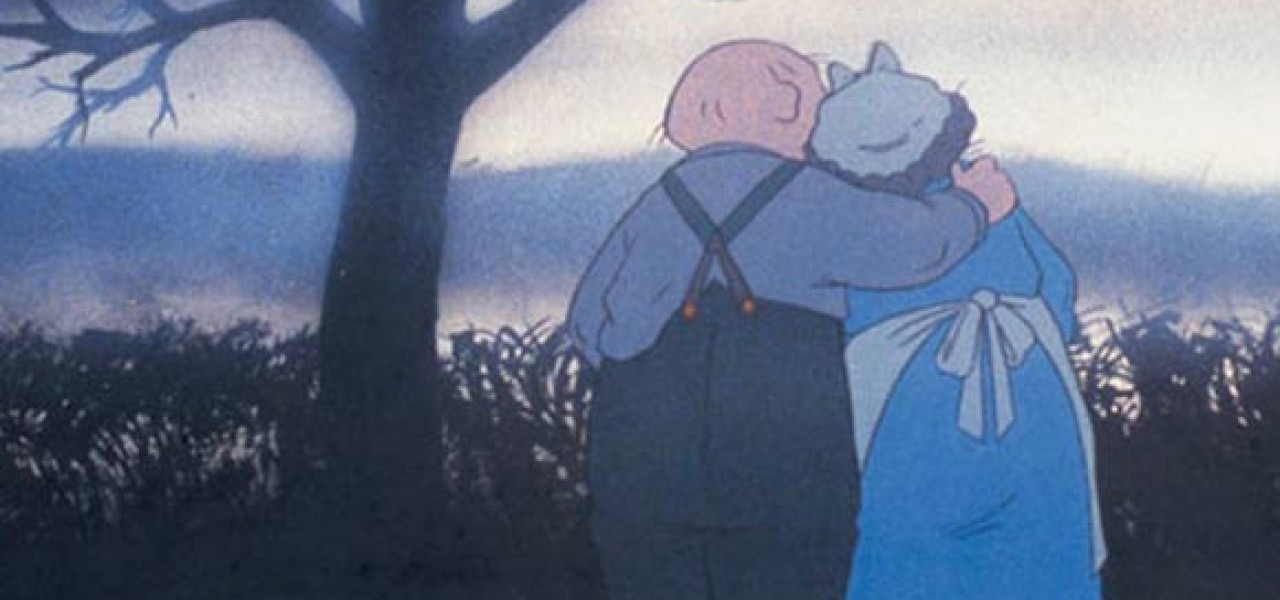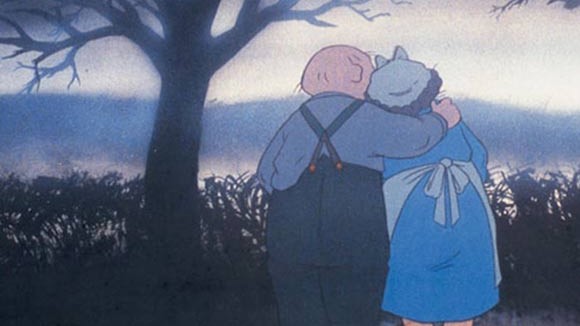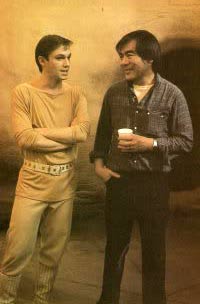

“When the Wind Blows” Director Jimmy Murakami, RIP

Japanese-American animation legend Jimmy Murakami, who played an important role in the development of Ireland’s animation industry, has died at the age of 80, reported the organization Animation Ireland. The cause of death is unknown.
A restless creative soul who directed numerous award-winning shorts and the much-admired feature When the Wind Blows (1986), Murakami hopscotched the globe as few other artists. In the span of a few years during the late-1950s, he worked at United Productions of America in Los Angeles, Pintoff Productions in New York, Toei Animation in Japan, and TVC Studio in London, and then followed that with stints in Italy, France and The Netherlands.
Murakami was born on June 5, 1933 in San Jose, California. At the age of nine, he became a victim of America’s World War II concentration camps in which tens of thousands of West Coast-based Japanese-Americans were imprisoned for years. It was a life-altering experience that would scar him for years afterward. “I was very, very bitter, to be an American citizen treated this way,” he later said. “My older sister died in the camp and the rest of us came out pretty bad.” A documentary was produced recently about this period in his life entitled Jimmy Murakami— Non-Alien:
Murakami’s family considered moving back to Japan after the war, but their family’s home had been bombed to rubble, so they settled in Los Angeles. Murakami attended Chouinard Art Institute in the 1950s, where his teachers included Don Graham and Disney animator Marc Davis—and his night-class drawing classmate was WB animation director Chuck Jones. He was hired by UPA in 1955 to work on the studio’s groundbreaking TV series The Boing Boing Show. Murakami also worked on the “Ham & Hattie” theatrical series with Fred Crippen; he designed the big-nosed islanders in the “Jamaica Daddy” sequence of the Oscar-nominated Trees and Jamaica Daddy (1957):
He moved to New York in 1958 to work at Pintoff Productions, which was run by his former UPA colleague Ernie Pintoff. Working with Pintoff, Murakami designed the Oscar-nominated short The Violinist (1959):
Murakami moved to Tokyo in 1959 to work at Toei Animation, an experience that he described in this interview:
“I was basically cracking up, to be honest. I was drinking too much, my health was suffering with late nights in New York. I thought I was going insane. I wanted to find my roots as a Japanese. I was brought up Japanese, speaking Japanese at home as a kid. So I thought, I better go to Japan. No-one was guiding me… I didn’t tell my parents anything, I didn’t want them to worry. So I took a boat to Japan, not knowing if I would stay there the rest of my life or what; just made a decision to leave America.
“I worked in Toei Animation for a time as a consultant, and all they did was give me grief because they wanted me to do everything their way, including using paper-clips for registration instead of pegs, so the picture would be ‘jittery.’ I had disagreements and left. Then I painted watercolors, made woodcuts and taught conversational English to university students and prostitutes and bar-girls. I sold some paintings, but for negligible money.”
After that experience, Murakami worked for a time in London at George Dunning’s TVC studio, where he wrote and directed the BAFTA-winning short Insects (1961). Afer working around Europe, he returned to Los Angeles to launch Murakami-Wolf Productions in 1965 with business partner Fred Wolf. At the studio, which was among the busiest LA commercial houses during the late-Sixties, Murakami directed mostly commercials, titles, and industrial projects, but he continued to make personal films on the side, include the Oscar-nominated Magic Pear Tree and the Annecy Grand Prix-winning Breath, a (poor) copy which can be viewed below:
 Murakami settled in Europe permanently in 1971 when he traveled to Ireland to become a second-unit aerial director on Roger Corman’s The Red Baron. Murakami would later direct the Corman movies Battle Beyond the Stars and Humanoids from the Deep. (In the photo at right, he is on the set of Battle Beyond the Stars with actor Richard Thomas.) In Ireland, Murakami set up the commercial studio Quateru Film to work on freelance projects. Among the memorable works he made was the opening sequence of Hevy Metal (1981):
Murakami settled in Europe permanently in 1971 when he traveled to Ireland to become a second-unit aerial director on Roger Corman’s The Red Baron. Murakami would later direct the Corman movies Battle Beyond the Stars and Humanoids from the Deep. (In the photo at right, he is on the set of Battle Beyond the Stars with actor Richard Thomas.) In Ireland, Murakami set up the commercial studio Quateru Film to work on freelance projects. Among the memorable works he made was the opening sequence of Hevy Metal (1981):
He served as the supervising director of the British TV special (and now a holiday classic) The Snowman (1982) based on a children’s book by Raymond Briggs. This led to a second collaboration with Briggs that would become one of Murakami’s most well received projects: the 1986 feature When the Wind Blows, a hand-drawn/stop motion film depicting an impending nuclear attack through the eyes of a retired British couple. Murakami talks about the film (as well as other parts of his career) in this interview:
After his studio Quateru closed, he opened Murakami Films in Dublin. The studio worked on the Teenage Mutant Ninja Turtles (1989), which was produced by his old business partner Fred Wolf, and Murakami also directed the TV series Storykeepers (1995) and Christmas Carol: The Movie (2001). Murakami’s long experience in animation made him a valued figure in the Irish animation community at a critical time in the development of their modern industry. On Twitter this morning, Cathal Gaffney, a co-founder of the Irish animation studio Brown Bag Films, called Murakami “a founding father of Irish Animation,” suggesting the importance of his presence in the country.
Murakami’s career is remarkable for its breadth and variety, as well as for his fiercely independent streak that led him to carve out his own creative path. It’s not an easy life to sum up, but historian Giannalberto Bendazzi put it nicely when he wrote:
[Murakami] belongs to the generation of specialists who were trained or inspired by UPA, and is among the first of the American intellectuals who found their social awareness during the difficult 1950s—educated, sensitive artists devoted not so much to finding absolutes in art as to creating intelligently tasteful, ethical films for large audiences.

.png)